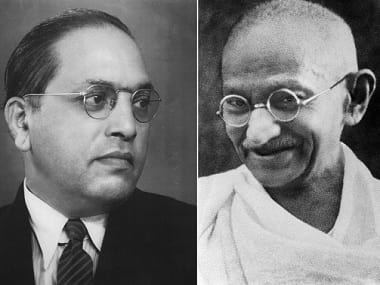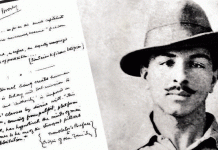Is there anyone who bothers about Karl Marx? Even the leftists in India seem to have lost the confidence; they are not very sure whether they would celebrate Marx or Ambedakar, or prioritize class over caste. And the Ambedkarites, it appears, do not appreciate the idea of celebrating any other icon, be it Gandhi or Marx. Furthermore, in these ‘postmodern’ times (recall Derrida’s ‘deconstruction’, or Baudrillard’s ‘hyper-real’ media simulations), the ‘grand theory’ of the ‘modernist’ Marx is suspected. Likewise, as the neoliberal assertion sanctifies the instrumental rationality of the techno-managerial corporate empire, whatever is associated with Marx–say, the abolition of private property, and the plea for a classless society–is seen to be a residue of an old-fashioned idealism.
Yet, The New Leam believes that one need not necessarily be a ‘Marxist’ (say, by giving absolute consent to the postulates of historical materialism and dialectical logic) in order to celebrate Marx’s profound humanism, and the ‘ways of seeing’ he sought to cultivate through his encyclopedia writings: from The Communist Manifesto to The German Ideology, and from Economic and Philosophic Manuscripts of 1844 to Capital.
Well,it is debatable whether Marx was a reductionist (economy determining culture), and whether economic determinism or rigid scientism was the essence of his philosophy. It is also possible to say that human aspirations and thinking cannot be explained merely through the logic of ‘class’ – man’s location in the ‘forces and relations of production’. Likewise, ‘conflict’ – the conflict of the antagonistic classes – need not necessarily be the most important driving force for the movement of history.
Yet, what is difficult to ignore is the therapeutic significance of his quest – his penetrating critique of an exploitative society–be it feudal or capitalist, and his striving for a just world: communism as a resolution of the hitherto existing conflicts. It is difficult not to be touched by his moral/ethical sensibilities – the way he saw the existential/psychic pain implict in the fragmented/ alienated labour that envelops our existence in a society in which most of us are compelled to sell our labour for mere survival, but have no control over what we produce, or the way we produce, or its gains and uses.
And then, it was Marx who was reminding us of the more substantial meaning of freedom. Even though a bourgeois society speaks of the liberty and freedom of the individual, the fact is that, to take a simple illustration, Ambani matters more in the policy making process of the government than a poor farmer or an industrial worker. In other words, substantial freedom requires a reasonable degree of economic empowerment. A society that promotes internal cleavages and uneven power relations cannot generate true freedom and fraternity; instead, it is an ideological illusion–a sort of ‘false consciousness’.
A philosophy of life that is based on the atomization of the individual, and the doctrine of the ‘survival of the fittest’ is dehumanizing. It breeds inequality and violence. In a way, in modern times Marx could also be seen as our conscience – a proponent of some sort of secular religiosity. To lose this conscience is to further promote a non-sustainable/ecologically destructive model of development based on greed, exploitation, reckless consumption and violence.
No wonder, Marx inspired many thinkers, activists and philosophers. Our understanding of society has been enriched by Antonio Gramsci’s notion of ‘hegemony’ as well as Herbert Marcuse’s notion of ‘one-dimensional man’. Erich Fromm, Rosa Luxemburg, Eric Hobsbawm, M.N.Roy – all of them in their own ways studied Marx .This critically nuanced and creative engagement with Marx ought to continue.
The New Leam believes in intellectual pluralism. Yes, Ambedkar is important. Gandhi and Tagore are amazing. And the spiritual discourses of Kabir and Rumi are life-enchanting. Likewise, Marx too is a great companion. As we welcome a new year in the calendar, let us find an opportunity to revisit some of the greatest thinkers-philosophers that have shaped the world.














